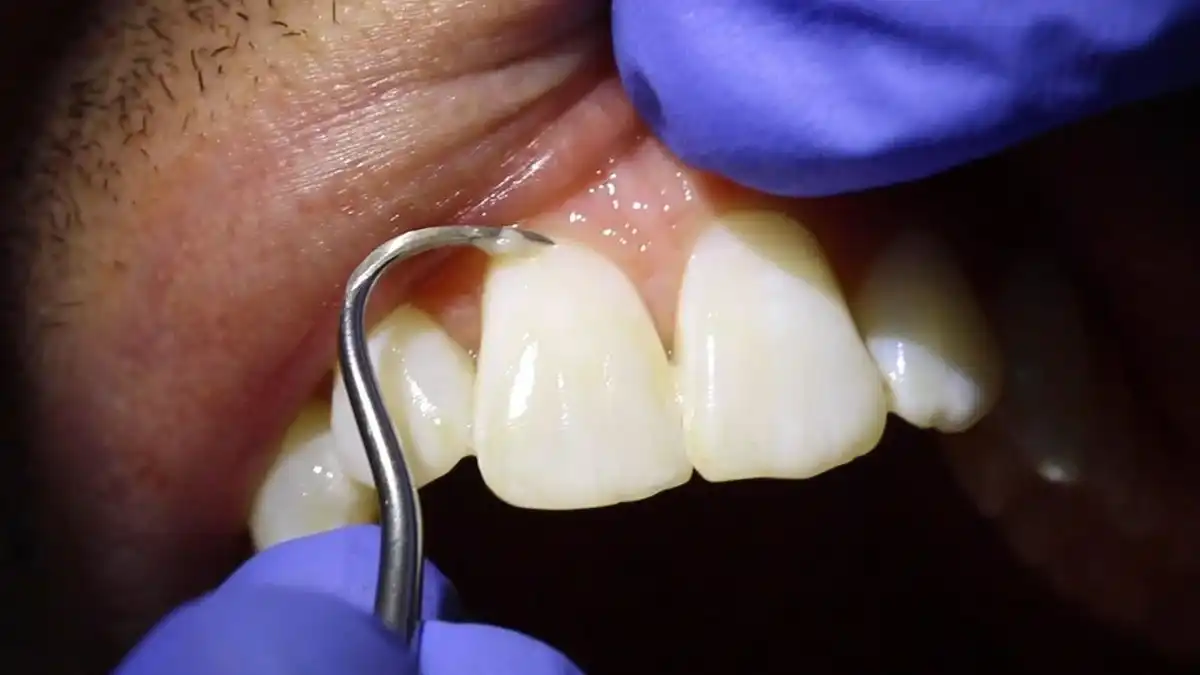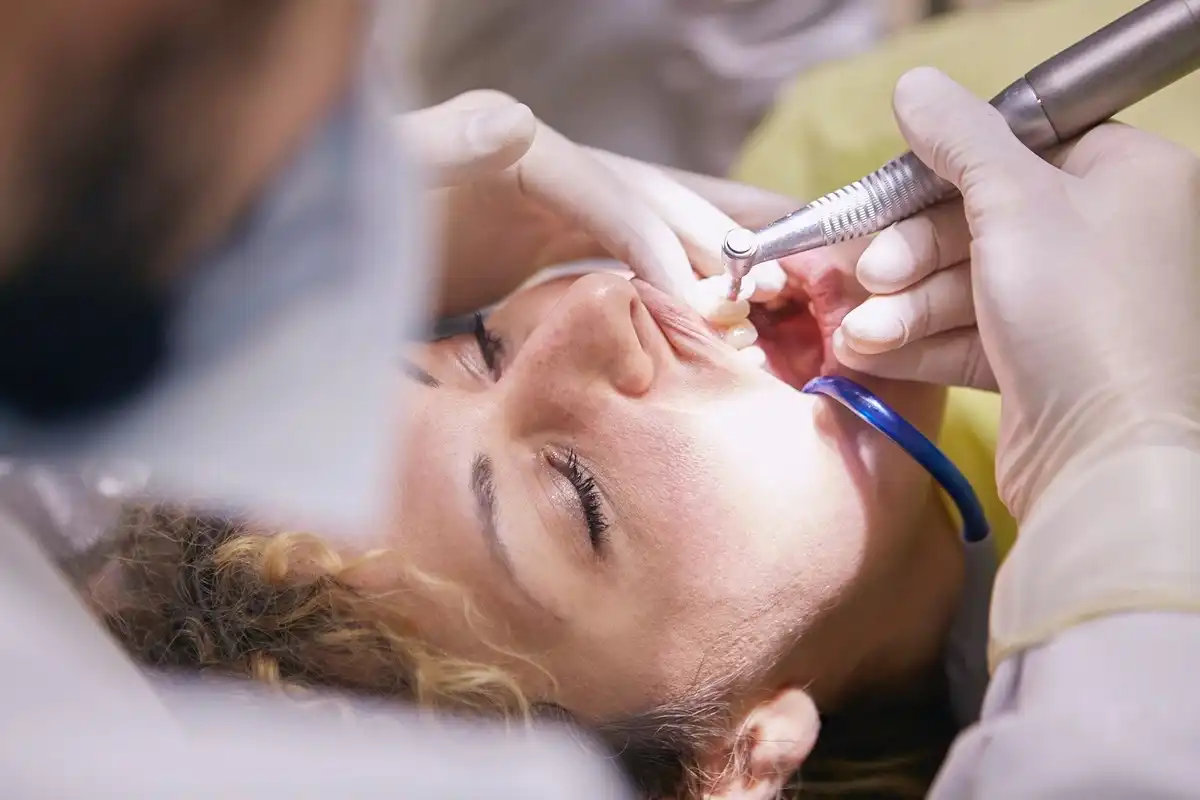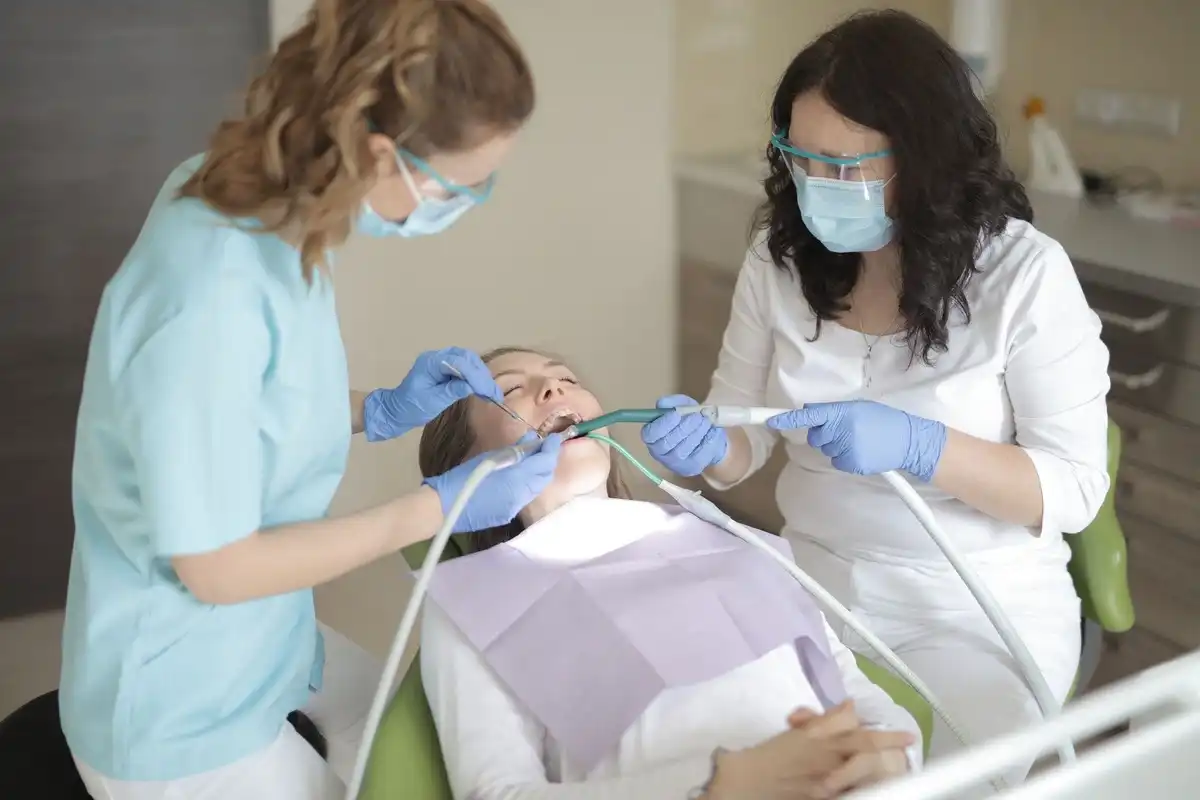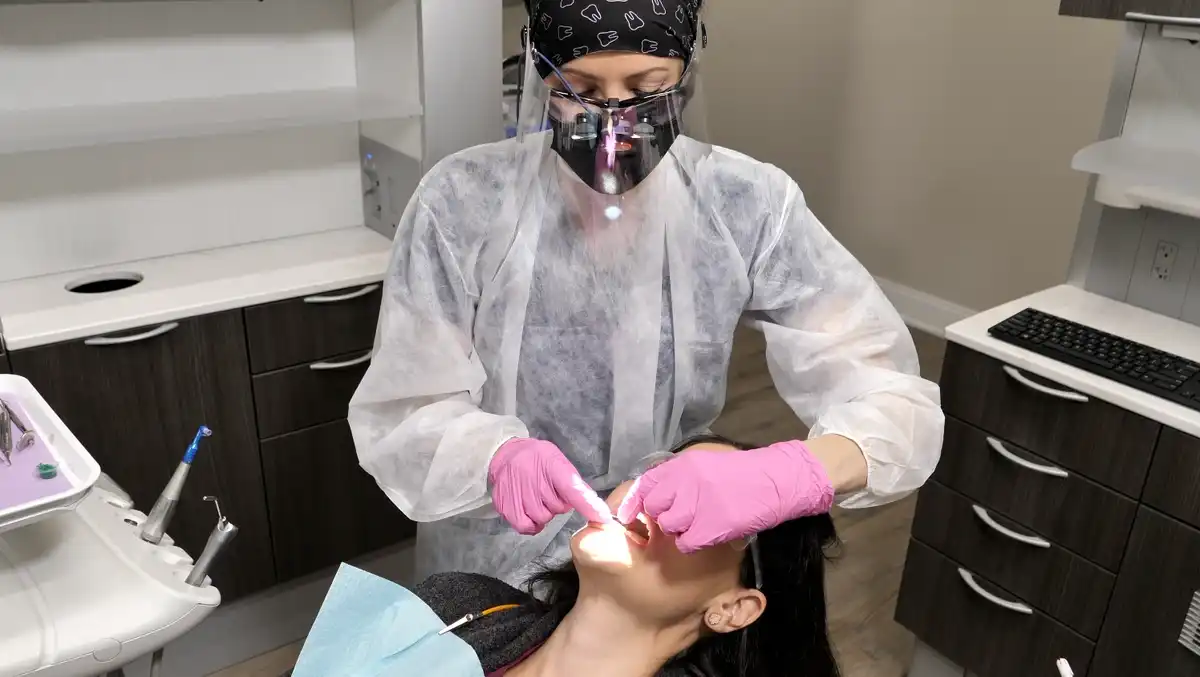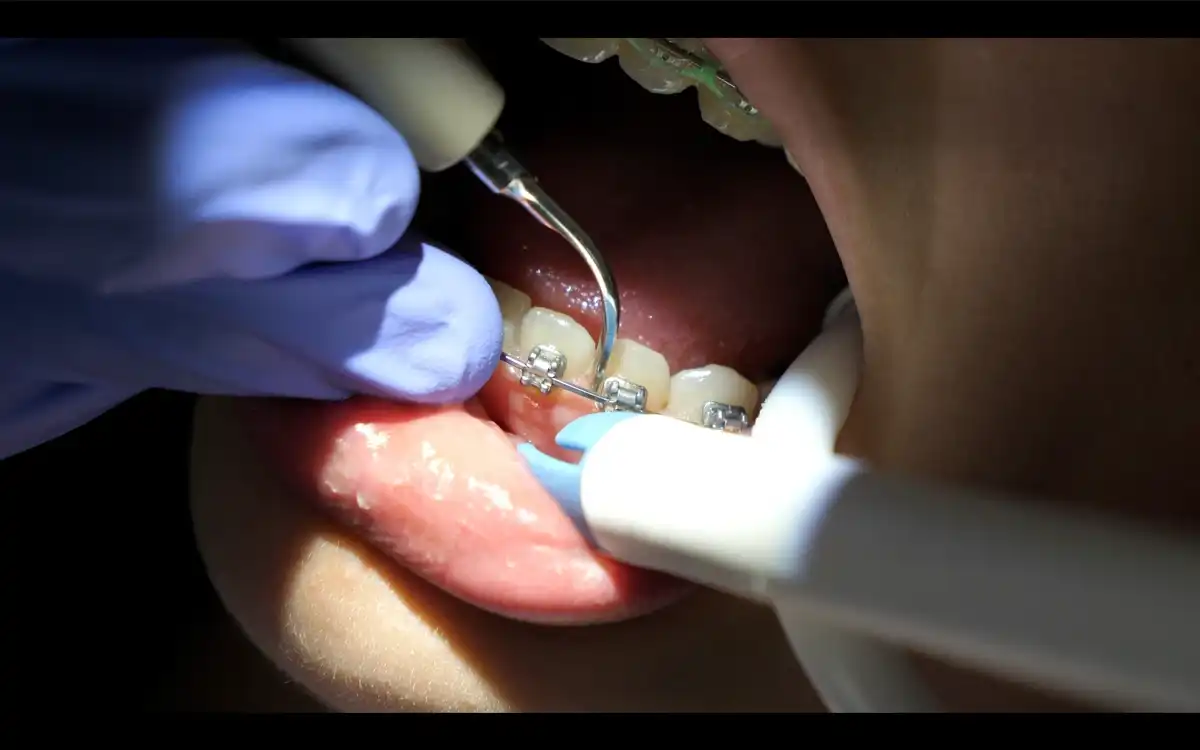Pros and Cons of Corporate vs. Private Dentistry (Dental Hygienist)

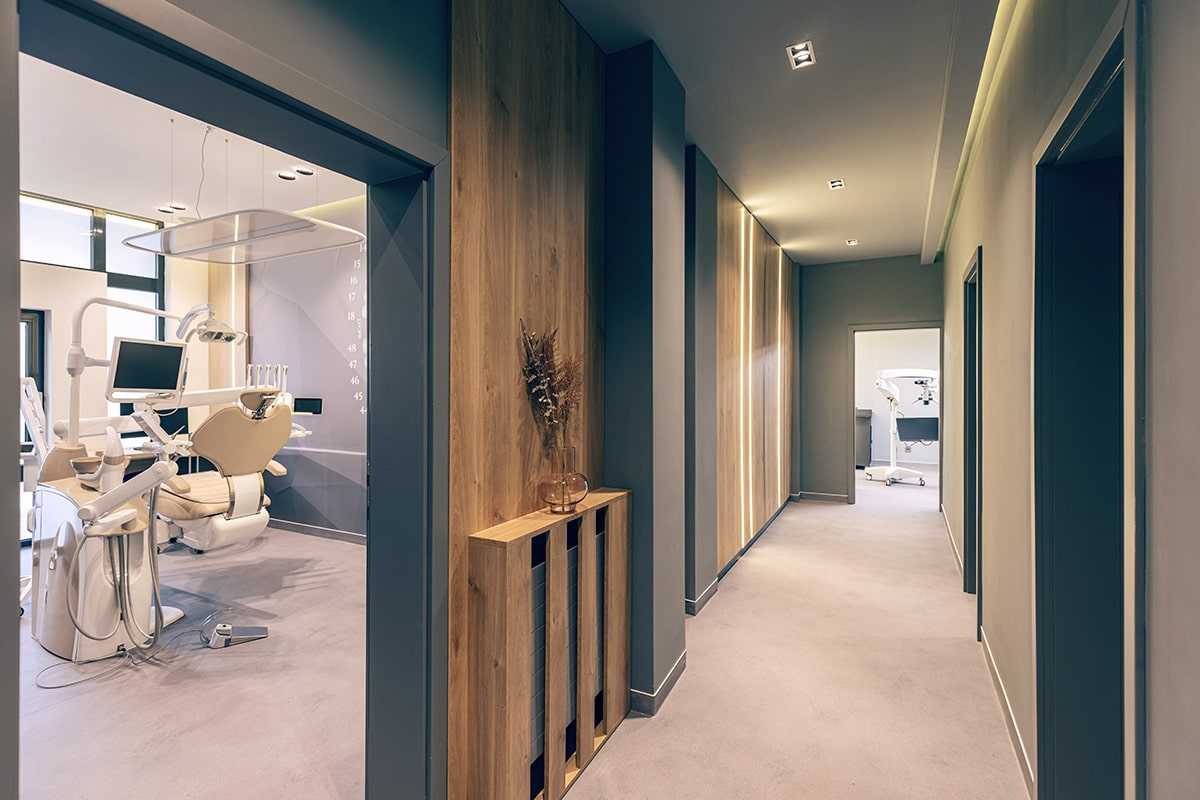
Dental hygienists can be found practicing in a multitude of work settings. They usually include places like private dental practices, corporate dentistry offices, community health clinics, hospitals, nursing homes, schools, and even prisons! It’s exciting that dental hygienists have so many options to explore where they may fit best into their lifestyle or schedule. With all these different environments a dental hygienist can find themselves in, it’s important to understand the differences of each one and what the benefits are. Among the most common is deciding whether to be a private vs. corporate dental hygienist.
What Is The Difference Between A Private And Corporate Dental Office?
Private dental offices are more of a traditional dental clinic. A private practice for general or cosmetic dentistry is typically owned by one dentist or has an additional dentist who co-own the practice. Typically, private practices have one location and thrive on creating relationships with patients that stick around for the long term!
Corporate dental offices often have multiple locations (sometimes across different states) on a much larger scale. Corporate offices are typically owned by non-clinical investors or teams of corporate dentists, who employ many staff members per location and manage the business from a remote location. Corporate offices thrive on using their brand name to market their practice.
Private Dental Offices
Let's go over the pros and cons of a private dental office for a dental hygienist.
Pros of Private Practice Dentistry
1. Autonomy and Flexibility
Typically, hygienists can give a personal spin on patient care recommendations and will have many “regular” patients that have been loyal to the practice. Private practice owners often value individuality and know their patients do we as well!
2. Personalized Patient Care
At a private practice, dental hygienists are often given a bit more flexibility when it comes to how they approach their patient care. This can often be due to the close relationship and trust that a dentist and hygienist have with one another working so closely together. It is not uncommon to have patients request the same dental hygienist for many years as they know and trust the care they are receiving.
3. Close-Knit Team Environment
Due to the naturally smaller size of a private dental practice, these types of teams tend to be closer to each other than the expansive teams of corporate organizations. This closeness can happily lead to open communication between team members and encourages professional and personal growth. Hygienists can collaborate directly with the dentist in charge of making policies or business changes to have an active role in the clinic. Teamwork can really make the dream work of running a successful private practice!
4. Potential for Higher Earnings
The advantages of private practices is that they may allow for more growth when it comes to salaries (at least in some cases) and might be more likely to provide bonuses and reward hygienists that have shown loyalty to the practice. Find out dental hygienists salaries by state here.
Cons of Private Dental Practices
1. Limited Benefits and Job Security
While a private dentist will usually make more money in the long run compared to one working for a corporate office, they are also personally responsible when things go south. A private practice owner, often a single dentist, is financially responsible for salaries, overhead costs, and so much more. If finances are not doing well, this can spill over into the office environment. Private practice dentists typically don’t offer the same level of job benefits—such as paid vacation, retirement, or insurance benefits—that you would nearly always see from a corporate dental organization.
2. Smaller Patient Base
While it can be special to have long term patients and build lasting relationships that result in practice loyalty, it also comes with the fact that a majority of a private practice base is from the surrounding community. This smaller reach can lead to fewer patients, which can spill over into scheduling availability. On the flip side, it could also lead to cramming more patients into the days the hygienist is at the office. This can lead to difficulties when you request time off, resulting in feelings of guilt and frustration.
3. Administrative Responsibilities
Due to the smaller nature of a private practice team, the job duties of staff members can overlap with one another. For example, if the front desk staff is overwhelmed with phone calls or they are short staffed, some admin work may fall onto the hygienist. This can be stressful for hygienists who may already have a packed schedule and limited time.
4. Challenges in Marketing and Attracting Patients
While the local patient base can be reliable, it can be difficult to attract new patients to a smaller, private practice. Marketing challenges can occur due to location, limited resources, and a lack of budgeting. Private offices usually thrive on family and friend referrals.
General dentistry private practices, typically the dentist is a small business owner. As a solo practitioner handling all business aspects like hiring, scheduling, accounting, and more, managing these responsibilities can reduce the patient treatment time. The business side of a private practice involves many administrative burdens for the dentist, which could impact the rest of the dental team.
Corporate Dental Offices
Let's go over the pros and cons of a corporate practice or dental support organization(DSO).
Pros of Corporate Dentistry
1. Comprehensive Benefits and Stability
With a corporate dental office comes all the benefits and job stability, including vacation, insurance, and more! Corporate offices are often more than capable of providing benefits and services such as medical coverage, retirement options, and the list goes on. This can be highly desirable for dental hygienists as many private practices can’t compete.
2. Established Patient Base
Many corporate offices do not struggle with keeping a busy schedule because of multifaceted marketing and a widely recognizable brand. This allows for a solid patient base to fill the schedule, so you won’t have to worry about being sent home because of a lack of patients.
3. Advanced Technology and Resources
With corporate dentistry comes corporate funding. Corporate offices will have larger budgets to invest in the latest technologies and provide the best resources for providers and patients. The use of advanced technology and tools is also often used to promote a corporate office and bring in new patients. Newer technology can be a huge perk for hygienists, as it makes their job more ergonomic and efficient.
4. Reduced Administrative Burdens
Large corporate dental offices often have multiple employees. This means more evenly dispersed job duties, resulting in less stress on other staff. Hygienists are rarely needed to help with administrative work as there are typically employees that focus solely on building and maintaining a hygienist’s schedule. This allows hygienists to have more time to focus on their patients.
Cons of Corporate Dentistry
1. Limited Autonomy and Flexibility
With dental corporations come corporate business guidelines and rules. This can mean hygienists are expected to follow very specific protocols for patient care. In turn, this can leave little room for individualized differences in approaches to patient care. Hygienists may feel frustrated and “micro-managed” or controlled under these protocols.
2. Standardized Patient Care
Most corporate dental offices will have a mapped-out, step-by-step plan of what hygienists are to do during recall and new patient appointments, with zero room for change. This gives little room to personalize the care that hygienists think best suits the patient. This can build frustrations as private vs. corporate dental hygienists may feel they should be the ones making the decisions, not the corporation or manager who likely isn’t on site.
3. Lower Earning Potential
In long-term corporate offices, there may be less earning potential for dental hygienists. This can leave fewer opportunities to discuss raises and increase the turnover rate for some positions.
Comparing Work-Life Balance
1. Private Dental Offices
When a dentist owns a private practice, there tends to be more flexibility in choosing what hours they and their employees will work. This can lead to late-night and weekend shifts in some cases. There may be added pressure placed on hygienists as they feel obligated to pick up hours they otherwise would prefer not to work. While every office can certainly differ from what they expect of employees, this is something to consider.
2. Corporate Dental Offices
Regular business hours are typical for most corporate dental offices. Again, there are some exceptions to the rule (with some chains offering evening or weekend appointments.) An 8-5 job can allow for a healthier work-life balance that keeps employees feeling less stressed, more job satisfaction, greater concentration, and improved levels of happiness and fulfillment.
Career Growth and Professional Development
While dental hygienists can grow their careers in both private and corporate offices, there are a few differences in how a dental hygienist can accomplish these goals when comparing private vs. corporate dental hygiene jobs.
Job Satisfaction and Patient Interaction
Private Dental Offices
1. Strong Dentist-Patient Relationships
Many private practices thrive on the close relationships and trust they build with their patients. This is probably one of—if not the—biggest differences for private vs. corporate dental hygienists. Often patients will come back year after year and refer their own family and friends to join the practice based on their positive experiences. This can be an exceptional way to build a dentist-patient relationship, as there is trust at both ends of the relationship (which in turn, affects the hygienists.)
Patients trust the dentist with their care, and dentists in turn are grateful for the patient’s long-term commitment affordable dental care. This environment can truly build a beautiful relationship that is long lasting for everyone in the practice.
2. Impact of Personalized Care on Patient Satisfaction
With a strong dentist-patient relationship comes open communication and trust in one another. Including the input of the hygienist. Dentists are often more willing to be more flexible with treatment plans and know what to expect from their patients, and listen to the input of the patient doctor trust the hygienist who is providing direct care. This can lead to patients feeling more heard and understood. People that feel this way are also more likely to be receptive to their treatment plan recommendations.
Corporate Dental Offices
1. Efficient Patient Flow
Corporate offices thrive on new patients thanks to their marketing. This ensures a constant influx of patients, which boosts production and keeps the appointment schedule full.
2. Challenging to Establish Personal Bonds
While its certainly not impossible to build good provider-patient relationships in a corporate setting, it can be more challenging. With corporate offices, there is less of a history between multiple providers and a larger patient base. This lack of long-term commitment to certain hygienists or dentists can lead to distrust and insecurities in care. Dentists may also be expected to follow corporate protocols and have less flexibility for individual patient recommendations. Patients can feel as though their specific needs are not being met and may find another office that is willing to be more flexible.
Stress and Pressure in the Workplace
Private Dental Offices
Dental hygienists and staff in smaller private practices also can sometimes stress over similar things. Pressures to work outside of regular business hours, lack of health insurance benefits, jam-packed schedules, and guilt when taking time off can all lead to workplace tension. Close-knit teams can also lead to rifts, drama, gossip, and disagreements that never seem go away.
Corporate Dental Offices
Corporate employees in dental industry, including dental hygienists, will often feel stressed over extremely strict corporate protocols, lack of salary increases, and the stress of producing more money no matter how hard they work.
Coping mechanisms and work-life balance considerations
While any work environment can lead to stress and challenges with work-life balance, it’s important to know what you can handle (or not) for your life and career goals. Dental hygienists have to be aware of their stress coping mechanisms to ensure they don’t burn out before it’s too late! Regular exercise, a balanced diet, and other stress-reducing methods should be part of your daily routine, regardless! This can help keep the mind and body in a more balanced state, leading to career longevity.
Which One Will You Choose?
While private vs. corporate dental hygienist jobs both have pros and cons to consider, it’s impossible to say one is better than the other. There’s something for everyone. With private practices, dental hygienists are likely to feel a bit more empowered with their care recommendations, close relationships, and communication with their managing dentist. with Corporate dental practice, hygienists may thrive on using the newest dental technologies, feel secure in their job benefits, and enjoy their schedule more! It’s important for dental hygienists to be aware of what is most important to them, personally. And if that seems daunting, get out there and try it all! By throwing yourself into a corporate setting you’ll get to experience what you like and dislike. The same goes for private practice; don’t knock it till you try it! By putting yourself out there, you can get a feel for what is best for you and your dental hygiene career. Ask for working interviews, temp at offices you otherwise might not have, and get a feel for where you thrive.

Make your inbox smile!

